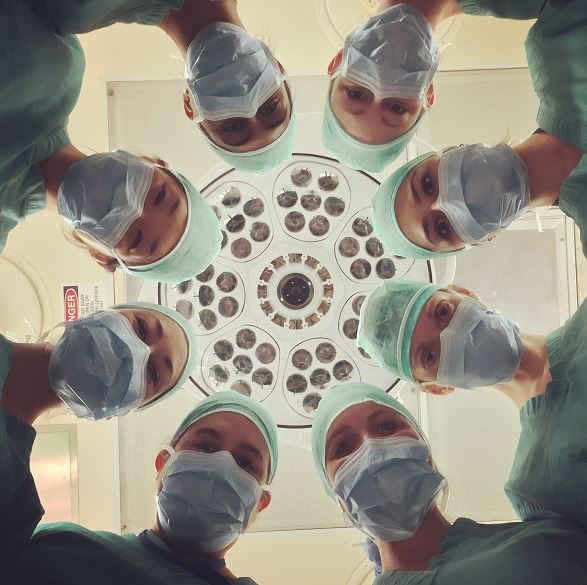
@ShahidNShah


Surgery is just the beginning. What happens after can make or break a recovery. This is where AI is starting to shine.
Hospitals and clinics are now using AI to track healing, spot risks, and personalise recovery plans. It’s faster, cheaper, and in many cases, safer. For patients, this means fewer complications and a better shot at getting back to normal life sooner.
According to a 2024 study by McKinsey, AI-driven care tools can cut recovery times by up to 30%. That includes faster wound healing, fewer readmissions, and improved medication adherence.
In the past, post-op instructions were usually the same for everyone. But not all patients heal at the same pace. AI can analyse your age, weight, medical history, and even previous surgeries to build a plan that fits you.
One company built a recovery app that adjusts your exercise schedule daily based on your mobility and pain levels. A user shared, “I didn’t think a machine would understand my pain better than my doctor, but the alerts were always right. It knew when I needed to slow down.”
This kind of real-time feedback helps patients stay on track without overdoing it.
Some AI systems can track when you’ve taken your meds and remind you when it’s time. They can even suggest changes if you’re reacting badly. That reduces the chance of complications and improves comfort.
Wearables and smart devices are now common in recovery kits. They track heart rate, oxygen levels, sleep, and mobility. But instead of waiting for a nurse to spot a problem, AI alerts the team in real time.
One patient recovering from knee surgery was flagged by a smart monitor that noticed unusual swelling patterns overnight. The AI flagged the trend and prompted the care team to adjust medication early, preventing infection.
AI doesn’t just catch problems early. It helps avoid them entirely. A 2023 study in The Lancet found AI-assisted monitoring reduced hospital readmissions by 23%. That’s huge for both costs and patient safety.
Recovery is not just physical. It’s mental too. AI-powered chat tools now offer check-ins and coaching throughout the process.
These bots aren’t there to replace doctors or therapists. But they give encouragement, answer questions, and help patients feel supported. One man recovering from back surgery said, “I didn’t want to keep calling the clinic with small stuff. The AI coach helped me stay calm and focused.”
When patients feel involved in their recovery, they do better. AI tools often include simple charts or progress trackers to show improvement. That visual feedback makes people more likely to stick with exercises or medication.
AI doesn’t just help patients. It also helps the people taking care of them. Doctors and nurses get alerts if something’s wrong. They can see patterns they might have missed.
One hospital in California uses AI to track surgical recovery timelines across thousands of patients. If someone is falling behind the normal trend, a nurse gets pinged. This lets them jump in early without having to review every chart by hand.
AI gets better the more it learns. By analysing recovery data across hundreds or thousands of patients, it can find patterns doctors might not see. These insights help improve protocols for future patients.
For example, some systems now predict which patients are likely to skip rehab appointments or struggle with certain exercises. That lets care teams plan ahead.
It’s the healthcare version of knowing your customer. Only in this case, it can save a life.
As helpful as AI is, there are concerns. Health data is sensitive. Patients need to know how their data is being used and stored.
Hospitals must be transparent. And patients should always have the right to opt out or ask for their data to be removed. In some cases, families have even tried to remove negative news articles that shared health information without permission.
AI helps. It doesn’t replace care. False positives or missed alerts can happen. That’s why human oversight is still key. The best systems use AI to support decisions, not to make them alone.
If you’re planning surgery, ask if AI tools are part of the post-op plan. Some hospitals use apps, wearables, or remote monitoring. If they don’t, there may be independent tools you can use.
Even a basic recovery tracker can help. Look for apps that let you log pain, sleep, medication, and steps. The goal is consistency, not complexity.
New tools are rolling out fast. Ask questions. Read reviews. Talk to your doctor before adding any new tech to your care routine.
“AI is helping us bridge the gap between hospital care and at-home recovery,” says Dr. Ammar Mahmoud. “It gives us more accurate data and helps patients stay engaged in their healing. The goal is always better outcomes with less stress.”
Surgery is stressful. Recovery doesn’t have to be. With the right tools and support, AI can make healing faster, safer, and less overwhelming.
The future of healthcare is not just high-tech. It’s personalized. And it’s already here.

Hyperbaric oxygen therapy (HBOT) has traditionally been reserved for clinical environments, used to treat a wide range of conditions from decompression sickness to diabetic ulcers and radiation …
Posted Jun 6, 2025 Biomedical Technology Wellness & Prevention
Connecting innovation decision makers to authoritative information, institutions, people and insights.
Medigy accurately delivers healthcare and technology information, news and insight from around the world.
Medigy surfaces the world's best crowdsourced health tech offerings with social interactions and peer reviews.
© 2026 Netspective Foundation, Inc. All Rights Reserved.
Built on Feb 20, 2026 at 3:27pm